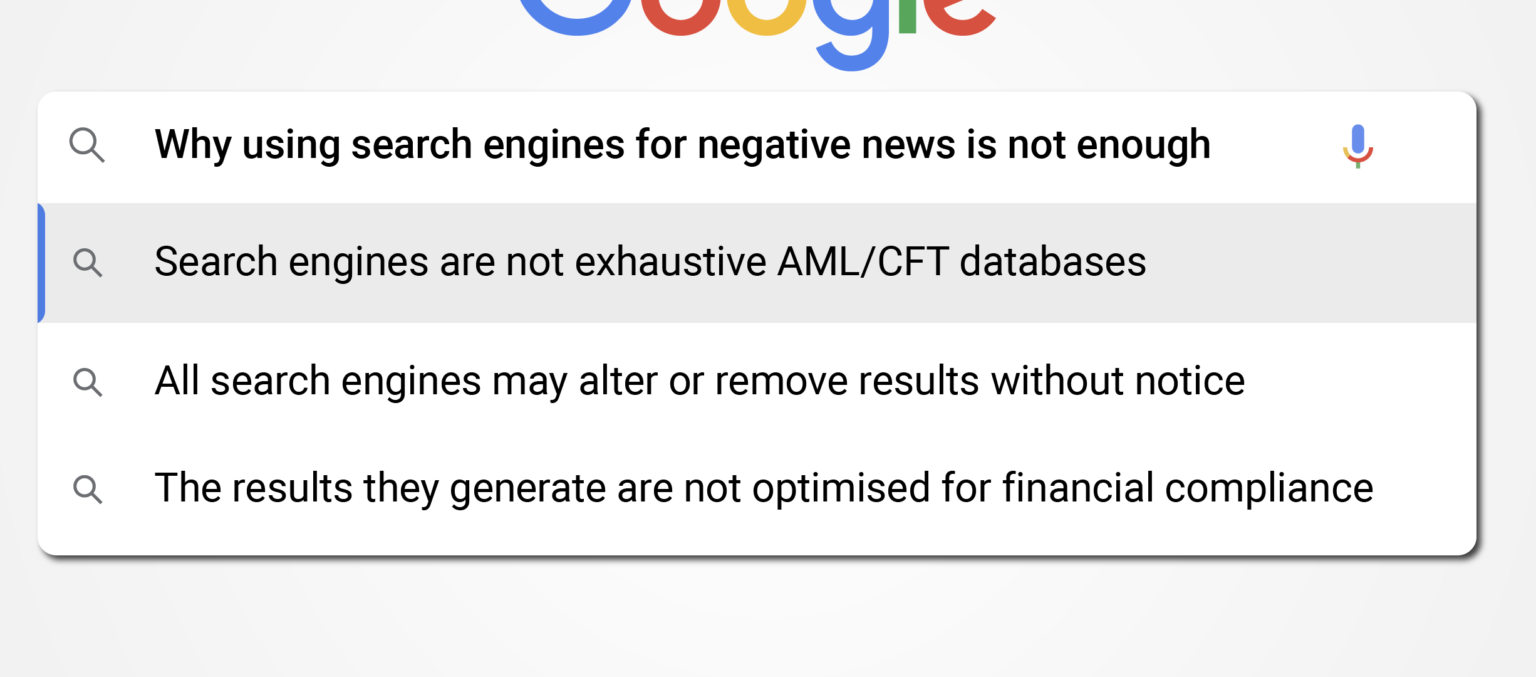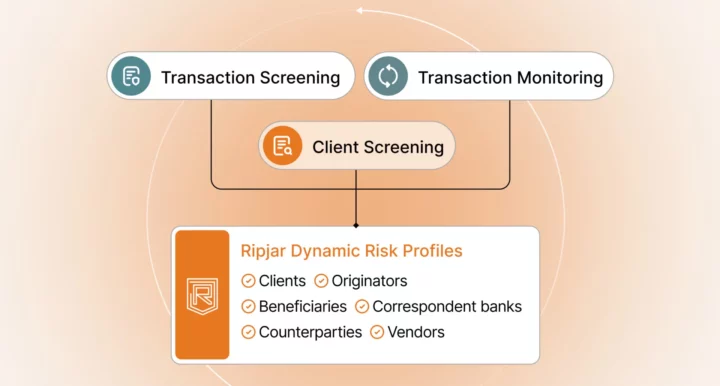The global media landscape is diverse and shifts constantly as news stories break. When a business searches for negative news to address its risk-based compliance challenges, it should expect to have to collect and analyse vast amounts of media with the goal of extracting specific data points about its customers.
While global negative news stories originate from a variety of sources, including screen and print sources, the vast majority of stories are hosted, and available, online in formats such as websites, blogs and social media platforms. Businesses may search for customer involvement in adverse media by conducting manual searches on web-based search engines – but should be aware of the limits of these web-based tools, and how to enhance their results for better risk management utility.
On 11 May 2022, the Wolfsberg Group published a series of negative news screening (NNS) FAQs to help financial institutions enhance their anti-money laundering (AML) and counter-financing of terrorism (CFT) risk management. Building on points raised in the Wolfsberg Group FAQs, we’re exploring the role that internet search engines can play in a NNS solution.
Search Engine Limitations
The online availability of news media suggests that internet searches, via search engines such as Google or Bing, may be suitable for the compliance-focused NNS process. However, search engines are essentially algorithm-driven content browsing mechanisms and not exhaustive AML/CFT databases. While search engine searches offer some utility for negative news screening requirements, the results they generate are not optimised for financial compliance and their algorithms may omit or de-prioritise certain relevant data points.
With that in mind, firms should integrate search engines into their negative news screening process with an understanding of their limitations. In order to address those limitations, and to optimise their screening functionality, firms might seek to use search engines with the following features:
- The capability to select specific parameters for searches and results, for example, setting languages, timelines, geographical scope, and the number of results displayed per page.
- Advanced search options such as the capability to specify search terms, content types, file types, and domain names.
- The capability to specify exact and partial search-term matching.
Search engine negative news screening involves a range of additional complications, not least those relating to the language in which a search is conducted. Words that are written in a local language system, for example, may deliver different results than the same terms searched in their translated equivalent.
The Importance of Keywords in NNS
Keywords are crucial to internet-based negative news screening. The most effective screening processes should involve defined keywords (sometimes referred to as key terms, or search phrases) in conjunction with the targeted customer’s name. There is no universally-codified approach to the application of keywords as part of a NNS search, which means the keywords your business chooses for each case should be aligned with your risk appetite and compliance priorities. Important considerations for keyword use as part of a NNS search include:
- Length: Search engines place limits on the number of keywords that may be used in a search. It may be necessary to run supplementary keyword searches if their length exceeds this limit.
- Precision: It can be difficult or even impossible to get consistent results from search engines, while use of generic keywords may deliver too high a volume of results with numerous false positive hits. Accordingly, keywords should be formulated with suitable precision in order to achieve an acceptable level of search relevance.
- Language: Keywords searched in different languages may generate different results. Firms should think carefully about what language keywords should be in for optimal NNS effect. Alternatively, firms may search in multiple languages providing the keywords have been translated correctly.
Search Engine Oversight
Most search engines are subject to the oversight of their owners who may alter or remove results without notice, or adjust the ways in which their algorithms generate results. This means that NNS searches may differ even when conducted within the same parameters or with the same keywords. Similarly, some search engines may be affected by corporate or political influence or may filter out results to meet local regulatory requirements such as censorship or data protection laws. In the EU, for example, the General Data Protection Regulation (GDPR) sets out strict rules concerning the retention of personal data and includes a ‘right to be forgotten’, which requires firms to delete customers’ personal information when it is no longer necessary.
The potential for search engine results to change in this manner is obviously a problem for regulatory compliance, which relies on firms being able to generate accurate, relevant information on an ongoing basis.
Search Engines and Compliance Technology
It is clear that negative news screening approaches should not rely on search engines alone to meet their risk-based compliance obligations. With that in mind, firms should consider search engines only as part of a tiered approach to NNS within their wider compliance technology deployment. This approach may involve the generation of an initial high volume of negative news alerts that are subsequently whittled down by the application of adverse media screening strategies, including the use of manual search engine searches. In this context, search engine results may be particularly useful for enriching the NNS process, adding depth and context to alerts and helping to address potential false positive alerts.
To find out how Ripjar’s next generation adverse media screening technology can help your business optimise its AML/CFT compliance response, get in touch today.
Last updated: 16 August 2024





